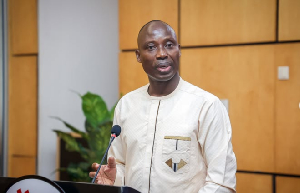Teacher Unions are formed to advance the course of members of the chalk fraternity. They see to it that teachers are not short changed in one way or another, by the other stakeholders in the education enterprise.
It is also their business to ensure that the teacher attains some level of financial security.
They undertake on behalf of the teacher in negotiations for good conditions of service and so on.
This proposal is going to be geared towards the teacher unions' quest for financial security for their members. People usually say that a teacher's ability to attain financial emancipation is a mission impossible.
But this narrative can change if the necessary mechanisms are put in place by the teacher unions to support the teacher in this regard. The following are some of the ways in which the unions can assist teachers to attain a little bit of financial freedom.
The teacher unions should setup welfare funds which are aimed at supporting teachers whose salaries are blocked or suspended etc for the wrong reasons. The teacher unions should make sure that, the sufferance which teachers go through when their salaries are taken off, becomes a thing of the past.
The teacher unions should ensure that any teacher whose salary goes off is paid an amount of money equivalent to 40% of that teacher's net salary. This intervention should continue until the affected teacher is back on payroll.
Here is how it can be done:
1. The unions should set up teachers' welfare funds;
2. When a teacher's salary is taken off, the teacher should officially inform the union he or she belongs;
3. the unions should investigate. If they find out that the salary was stopped wrongly, the affected teacher should be assisted;
4. The unions should give the affected teacher, 40% of the teacher's net salary in the interim whilst measures are employed to get the teacher's salary reactivated;
4. This support given to the teacher in sum, should not exceed the total contributions of that teacher to the union's fund;
5. When the teacher's salary is finally restored, the sum total of monthly support collected or accrued can be spread in installments of 12 months or more for the beneficiary teacher to repay;
6. The repayment is to be done without the inclusion of interest at any rate;
7. The repayment should be scheduled in such a way that the teacher would not feel it;
8. For teachers who may not have affordability, their mother banks can be contacted so that the repayment can be done through the banks.
If this intervention is realised, the money given to the teacher in that period will go a long way to cushion him or her. This will reduce the negative impact of the "No salary" on the teacher. Also, the teacher may not have to go cup-in-hand looking for soft loans from others, with his or her dignity hanging by the thread.
Another issue relating to financial freedom for teachers which the teacher unions should consider is freeing their members from the shackles of instant loan financial institutions. A lot of teachers are entangled in the complex web of loan granting institutions whose interest rates hit the roof. The modus operandi of these rip- off financial institutions is to capture, milk and discard. And it is very heart hurting to see these organizations feigning as "assistance" providing institutions. Every teacher today complains about the avalanche of text messages he or she receives from these leech-like financial firms.
I would like to propose that, the teacher unions should consider buying off or paying off loans of their members from those financial institutions. For example, a teacher will apply for a loan from the unions. The unions will use some of the borrowed amount to defray the loans that the teacher has with the financial institutions. And the rest is given to the teacher.
I have seen the teacher unions, in their bid to cushion their members, vie to have the lowest interest rates. And indeed, the rates of the teacher unions are exceedingly low as compared to the rates of the instant loan institutions. So the question is, what purpose would it serve if the rates of the loans given by the unions are so low and a chunk of their members are languishing in the financial dungeons of the loan companies?
And since the rates of the teacher unions are more competitive, this move, if realised, will make beneficiary teachers better off. This will make the intervention a rescue from financial abduction and torture.
The teacher unions should also put mechanisms in place to speed up the processing train of their loans. A lot of teachers go for those expensive loans because they need to attend to matters that need to be addressed quickly.
I am optimistic that the unions will carefully look into these proposals and implement them in the not too distant future.
May God bless our homeland Ghana and make her teacher unions greater and stronger.
Opinions of Sunday, 20 September 2020
Columnist: Adam Mutaka















